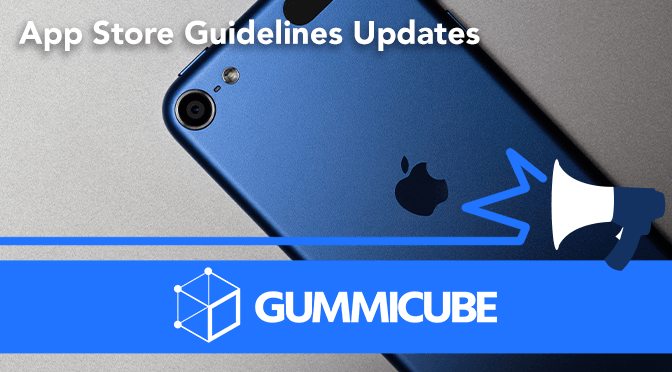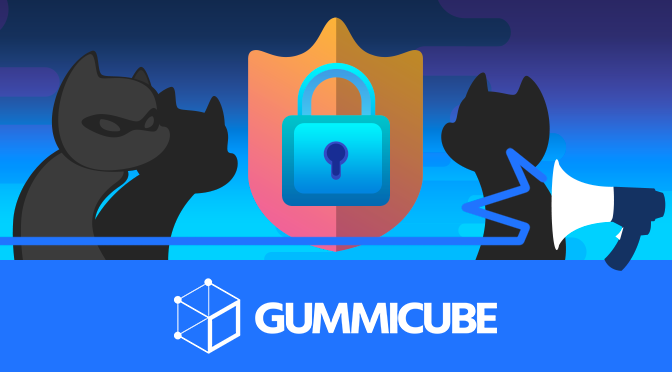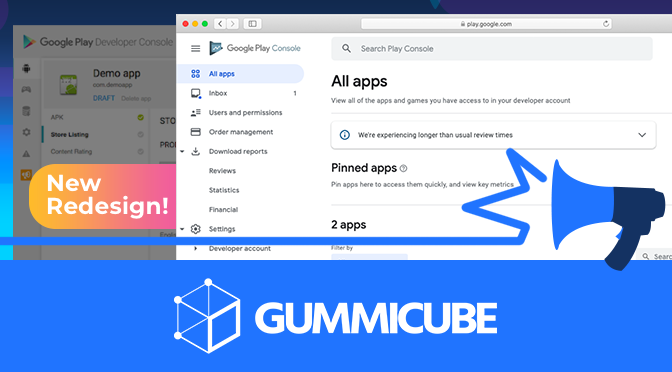
App Store Holiday Schedule 2020
Posted on November 23rd, 2020
When is the App Store Holiday Schedule 2020? Learn about the dates of this year's shutdown and how to prepare.

The App Store Guidelines have been updated with new rules. These include rules regarding spam, push notifications, data collection, Sign in with Apple and more. App developers should be aware of these changes and what it could mean for their apps. This enables developers to adjust their apps and App Store Optimization as necessary.
The guidelines update added new rules to the developer guidelines, including:
Along with the guideline updates, Apple announced that all iPhone and iPad apps submitted to the App Store starting April 30 must be built with the iOS 13 SDK or later. These apps must “use an Xcode storyboard to provide the app’s launch screen” and support all iPhone or iPad screens (depending on what devices the app is available on).
App developers should ensure that their apps are up to date and built following these guidelines and with the iOS 13 SDK in advance of the April 30th deadline. Submitting early will ensure the apps have enough time to be reviewed and fixed as necessary prior to the cutoff date.
These guideline updates will impact a large number of apps across the App Store. Any developers with apps that may be impacted by this should check carefully to ensure their apps are compliant.
Dating and fortune telling apps may be significantly impacted by the change to section 4.3. The guidelines have been updated to state:
“The App Store has enough fart, burp, flashlight, fortune telling, dating, and Kama Sutra apps, etc. already. We will reject these apps unless they provide a unique, high-quality experience.”
While “unique, high-quality experience” is a vague term, developers of dating and fortune telling apps should check their app and competitors to ensure they have something unique to offer that helps differentiate them from the competition. Incorporating these unique values into their App Store Optimization can help the app get approved as well as help it stand out to users.
Any apps with push notifications should ensure their apps are not transmitting sensitive information through them. Apps that offer special deals, sales or promotions should ensure users can opt in or out of receiving promotional options. This can provide an opportunity to market to users that opt in to receiving such notifications. Including information such as “Get the latest deals” or “special offers” in an App Store listing as part of its App Store Optimization can encourage users to opt in, as it presents these notifications as a benefit of the app.
Similarly, apps that use third-party sign-in services should check the latest updates for Sign in with Apple. These Store Guideline changes not only impact the rules on apps that use it but also provide new design resources, such as center-aligned or logo-only buttons.
Any app that is impacted by these changes should update and adjust as soon as possible. Any future updates that do not address these changes may be at risk of rejection. If an update is not approved, this will also delay any changes to the keywords and creatives. This could result in the rankings for an app stagnating, or for an app to be stuck with creative sets that do not help the conversion rate until the developer implements the required changes.
App developers should ensure their apps and App Store Optimization strategies are fully up-to-date and compliant with Apple’s guidelines. Changes like this can impact a wide number of apps, so developers must be aware and compliant in order to succeed.
Want more information regarding App Store Optimization? Contact Gummicube and we’ll help get your strategy started.

When is the App Store Holiday Schedule 2020? Learn about the dates of this year's shutdown and how to prepare.

Apple's App Store Guidelines have strict privacy requirements. Developers now must provide information to users on the App Store listing regarding the data they access.

The Google Play Developer Console has been updated with a new design and adjusted tools. What's different, and how will it impact App Store Optimization?